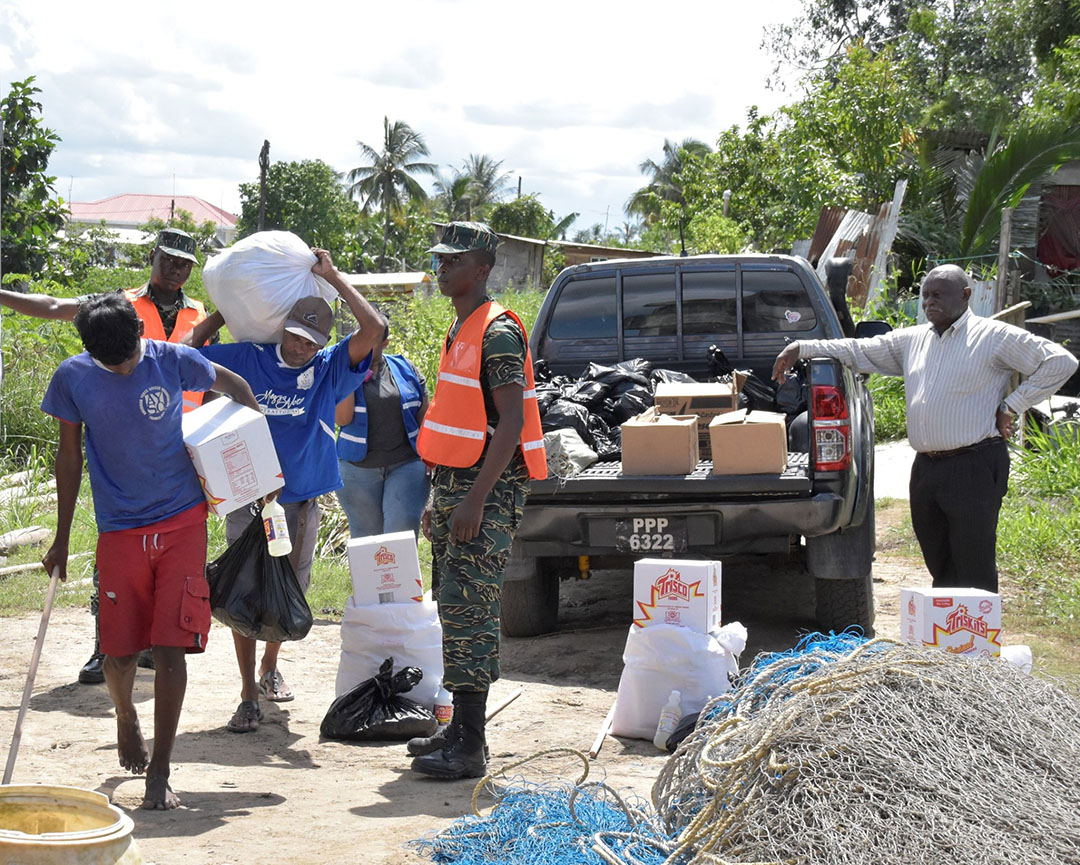The approximately 150 Venezuelan migrants currently squatting along the river dam between Grove and Herstelling are to be relocated.
A statement issued by the Ministry of the Presidency (MoTP) said this announcement was made by the Minister of Citizen-ship, Winston Felix, yesterday morning. At the time the minister, along with representatives from the Civil Defence Commission (CDC) were in the area distributing food hampers and cleaning supplies to both Venezuelans and Guyanese living along the river at Grove.
There are currently about 600 persons living on the river dam and approximately 150 are Venezuelan migrants, including about 30 children.
Felix stated that his primary focus will now be on engaging the United Nations High Commissioner for Refugees (UNHCR) and the International Organization for Migration (IOM) on the possibility “of relocating the Venezuelan migrants to more habitable circumstances.”
He opined that during the relocation process, some migrants will be able to acquire proper accommodation on their own and would get support from the international agencies.
“So, it depends on what is workable at the time support is given to the migrants. If the migrants find their own [accommodation], well support is given. Similarly, if the international community is instrumental in finding accommodation, they are supported in the same way,” Felix explained.
The Minister pointed out that since April 2018, the UNHCR had reached out to countries neighbouring Venezuela to encourage the acceptance and humane treatment of Venezuelan migrants. He added that those countries are being encouraged to not send the migrants back to their homeland nor to prosecute them.
“So as result of that we have been embracing the Venezuelan migrants however they come. As a result of the policy not to return them we have been … granting them three months stay which is renewable,” he said.
Felix noted that many of the migrants found living along the dam may not have gotten their permits and so officials are now examining the circumstances under which they are living. He explained that arriving Venezuelans must go through a two-part process: the Immigration Department, which makes a record and looks after their stay in Guyana and the second, the Ministry of Public Health, which is responsible for health checks and immunizations. The newly-found group of migrants, he said, will now have to go through this process.
The Minister emphasised that the Multi-Agency Coordinating Committee has oversight of the migrant situation. The last report from the Ministry of Public Health, he disclosed, revealed that over 800 migrant children are registered in schools throughout Guyana. Education for the children living along sea dam will be addressed, in addition to other matters relating to the migrants, including Trafficking in Persons.
The Minister mentioned an ongoing collaboration with United Nations Children’s Fund (UNICEF), which has shown an interest in ensuring that children are in school and that they are living in hygienic conditions.
With regard to the Private Sector’s involvement in assisting the migrants, Felix said aid must be coordinated through the CDC.
“The responsibility for resource allocation and assistance to Venezuelan migrants [is] the Civil Defence Commission… So, any person whether local or foreign, even the UNHCR and IOM… the Civil Defence Commission will collect supplies … and then distribute. Most of what would be distributed here had been received directly or through the support of the international agencies,” the minister was quoted as saying.










